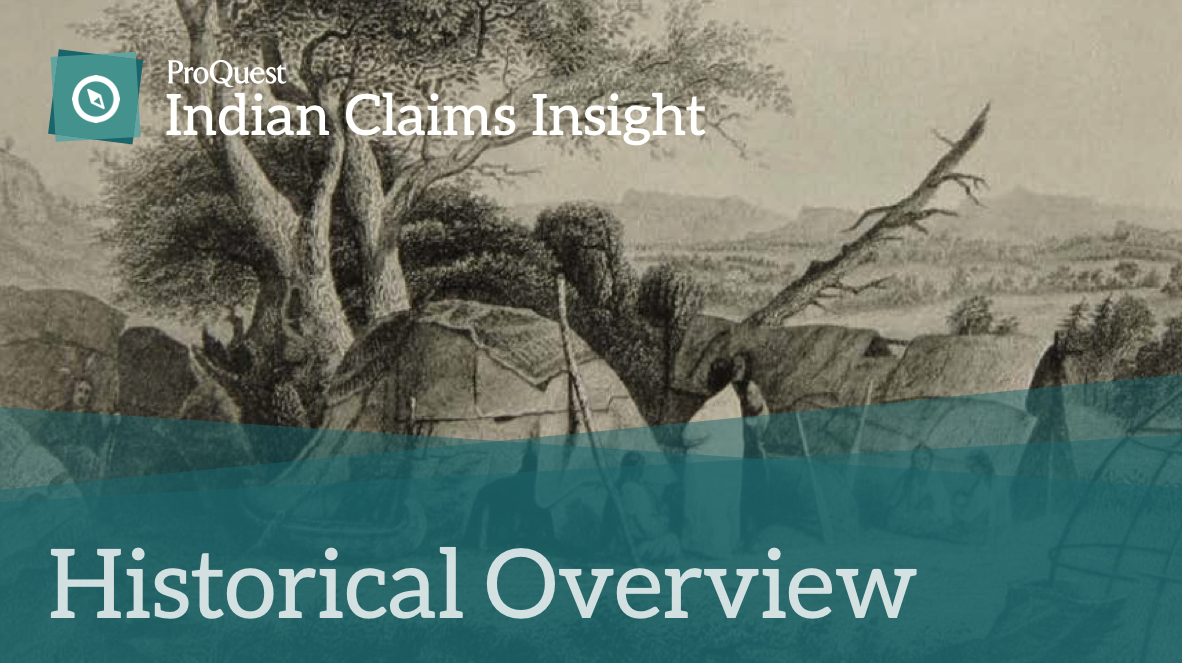Native American Heritage Month is winding down, but there’s still time to take a look at a database related to Native American history in the U.S.: ProQuest Indian Claims Insight.

When the 14th Amendment’s Citizenship Clause defined people born within the United States as citizens in 1868, Native Americans were excluded from that definition. Additionally, Native Americans were specifically excluded in 1863 from bringing claims against the U.S. government in the Court of Claims, established in 1855, after Native Americans attempted to file claims related to treaty violations.
Voluntary, courageous, and crucial service by Native Americans in both world wars somewhat softened governmental attitudes towards native people, resulting in the Indian Citizenship Act (or Snyder Act) in 1924 and the establishment of the Indian Claims Commission in 1946. The Indian Claims Commission made it easier on jurisdictional grounds for Native Americans to bring claims against the U.S. government. Most claims pertained to loss of lands, although other claims were filed. Congress intended the Commission to complete its work within ten years, but the Commission was extended multiple times until its termination in 1978, when its remaining cases were transferred to the Court of Claims.
Indian Claims Insight contains dockets, treaties, public laws, congressional hearings, transcripts, briefs, executive orders, and more. There are even maps! Explore this rich repository of Native American history, available in our A-Z Databases list.
